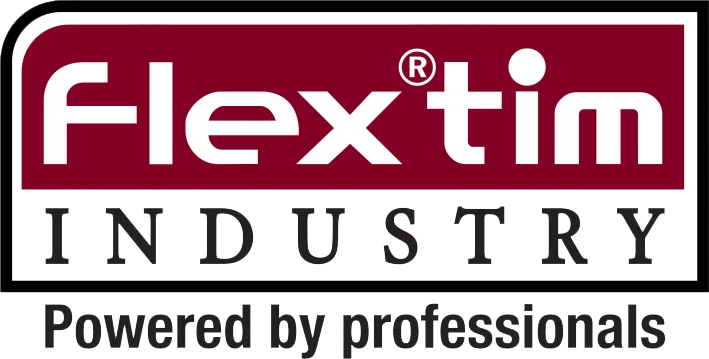PRESSURE WASHING AND DISINFECTION OF ANIMAL BARNS WITH FLEXTIM INDUSTRY EQUIPMENT
The maintenance and hygiene of animal husbandry halls are critical for ensuring the health and productivity of livestock. Proper disinfection practices are paramount in preventing the spread of diseases, controlling pests, and maintaining a sanitary environment.
Flextim Industry offers state-of-the-art equipment for pressure washing and disinfection, tailored to meet the demanding needs of modern livestock farming.
The necessity of disinfecting animal barns
Disinfection in animal husbandry is necessary for several key reasons:
- Disease prevention: regular disinfection minimizes the risk of disease outbreaks by eliminating pathogens that can cause illnesses in livestock.
- Pest control: effective cleaning and disinfection help control pests such as flies and mites, which can affect animal health and farm productivity.
- Biosecurity: maintaining a high level of hygiene prevents the introduction and spread of contagious diseases, protecting both animals and farm workers.
Enhancing biocide efficiency through pressure washing
Effective disinfection involves a few steps process: thorough washing followed by the application of biocides and a possible final rinse. Washing removes organic matter and waste, which can otherwise hinder the effectiveness of disinfectants.
Pressure washing, in particular, is essential for several reasons:
- Removal of organic waste: high-pressure washing effectively removes droppings, bedding, and other organic waste, creating a clean surface for the disinfectant to act upon.
- Increased biocide penetration: by eliminating organic matter, pressure washing enhances the penetration and efficiency of biocides, ensuring a more thorough disinfection process.
The role of pressure washing in animal farms
Droppings and other organic matter must be washed away with high-pressure devices to maintain a clean and hygienic environment. This can be achieved through manual washing with pressure devices or by employing automated solutions such as washing robots.
Manual pressure washing
Manual pressure washers are versatile and effective tools for cleaning animal shelters. They allow farm workers to target specific areas with precision, ensuring thorough cleaning.
Automated washing solutions
Automated washing robots, like the EVO Cleaner produced by Envirologic AB, offer a sophisticated alternative to manual washing. These robots provide consistent and thorough cleaning, reducing labor costs and ensuring uniformity in cleaning standards. They are equipped with advanced sensors and navigation systems, allowing them to operate autonomously within the farm.
Advantages of disinfection trolleys from Flextim Industry
Disinfection trolleys from Flextim Industry portfolio offer several advantages that make them ideal for use in animal husbandry:
- Mobility: frame-mounted equipment with wheels allows for easy transportation and maneuverability around the farm.
- Large capacity: these trolleys can hold between 50 to 200 liters of disinfectant solution, reducing the need for frequent refills.
- Powerful pumps: equipped with powerful pumps, these trolleys can deliver a high flow rate of up to 3,600 liters per minute, ensuring efficient application of disinfectants.
- Compressor: the inclusion of a compressor enhances the effectiveness of the disinfection process.
- Corrosion-resistant materials: made from corrosion-resistant materials, these trolleys are durable and can withstand the harsh conditions of a farm environment.
- Versatile disinfection options: the trolleys are designed for wet disinfection, foam disinfection, and even for specialized applications such as using Alzogur, a disinfectant specifically for controlling pig diseases.
- Comprehensive equipment: equipped with lances, pistol and hose, these trolleys provide everything needed for effective disinfection.
Biosecurity measures in animal farms
Implementing biosecurity measures is crucial in reducing the risk of disease transmission. These measures include:
- Disinfection mats and truck disinfection gates: placing disinfection mats at the entrance and exit of animal farm helps to sanitize footwear, while disinfection gates ensure that vehicles and equipment are disinfected before entering the farm.
- Electric fences: limiting the access of outside animals with electric fences prevents the introduction of diseases from wild animals.
- Waste management: immediate disposal of waste and mortality, such as through incineration, prevents the accumulation of potential disease sources.
- Disinfection filters, turnstile disinfection gates: using disinfection filters, turnstile disinfection gates for hands and feet disinfection, helps to maintain biosecurity and reduce the risk of airborne diseases.
Comprehensive disinfection solutions from Flextim Industry
Flextim Industry provides a comprehensive range of equipment designed to enhance the cleanliness and biosecurity of animal husbandry facilities. Our offer include:
- Pressure washers: high-performance pressure washers for thorough cleaning of animal shelters.
- Disinfection trolleys: mobile, high-capacity trolleys equipped with powerful pumps and compressors for efficient disinfection.
- Washing robots: automated solutions for consistent and labor-saving cleaning.
- Biosecurity equipment: disinfection mats and automated gates, electric fences to enhance farm biosecurity.
Conclusion
Maintaining a high level of hygiene in animal barns is essential for disease prevention, pest control, and overall farm productivity.
Flextim Industry offers advanced solutions for pressure washing and disinfection, tailored to meet the rigorous demands of livestock farming. By combining manual and automated cleaning methods with comprehensive disinfection equipment, Flextim Industry provides farmers with the tools they need to maintain a clean, safe, and productive environment for their livestock.
Implementing these solutions, along with robust biosecurity measures, ensures the health and well-being of animals, reduces the risk of disease outbreaks, and enhances the overall efficiency of the farming operation.





